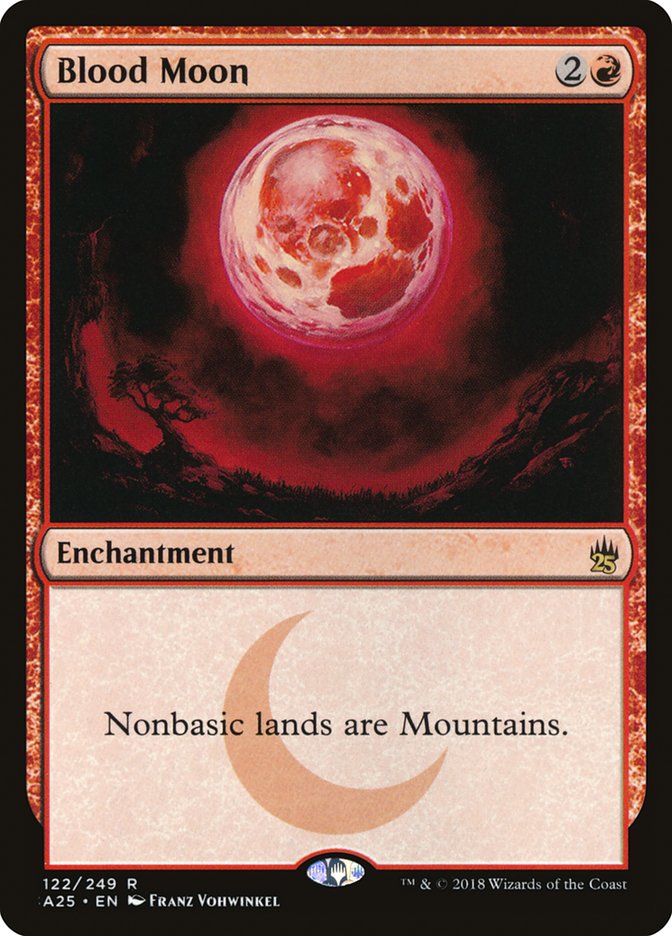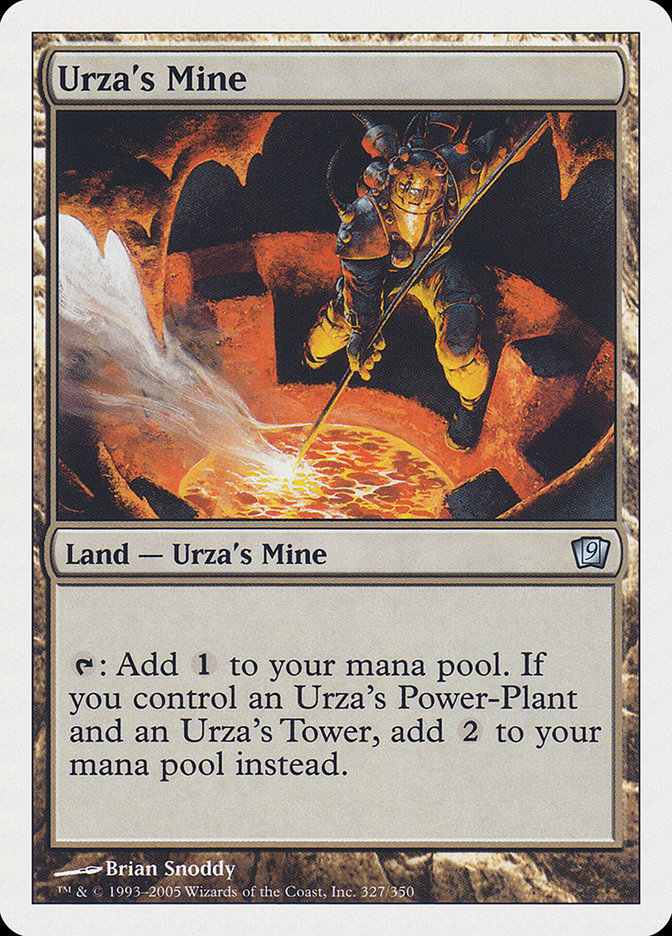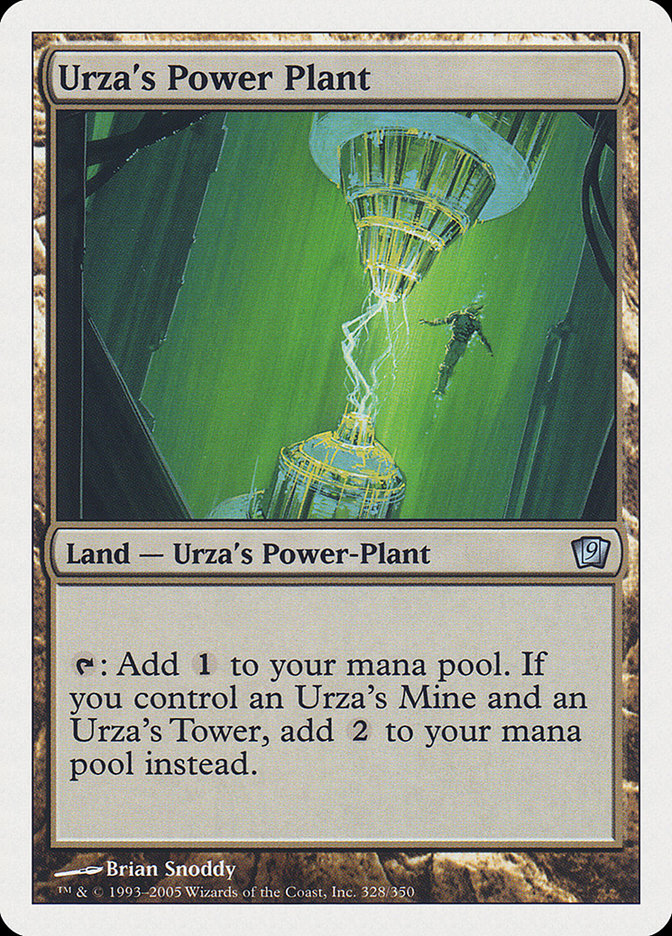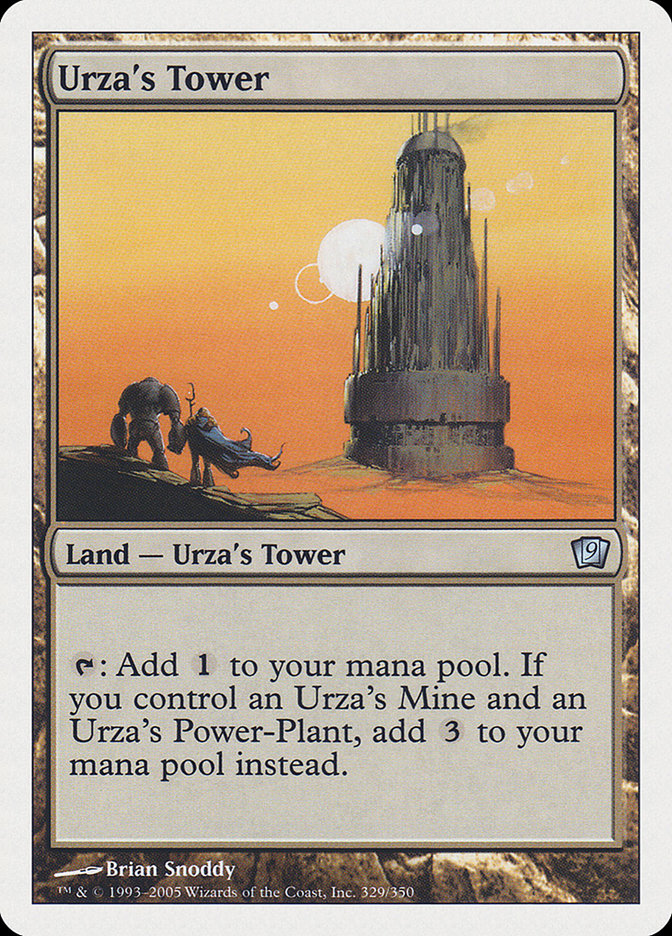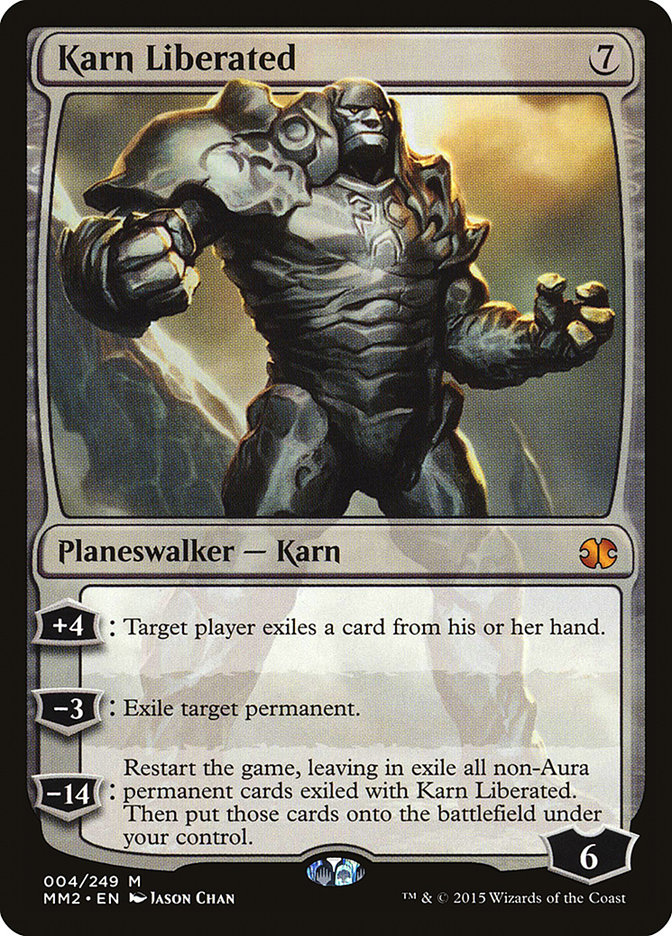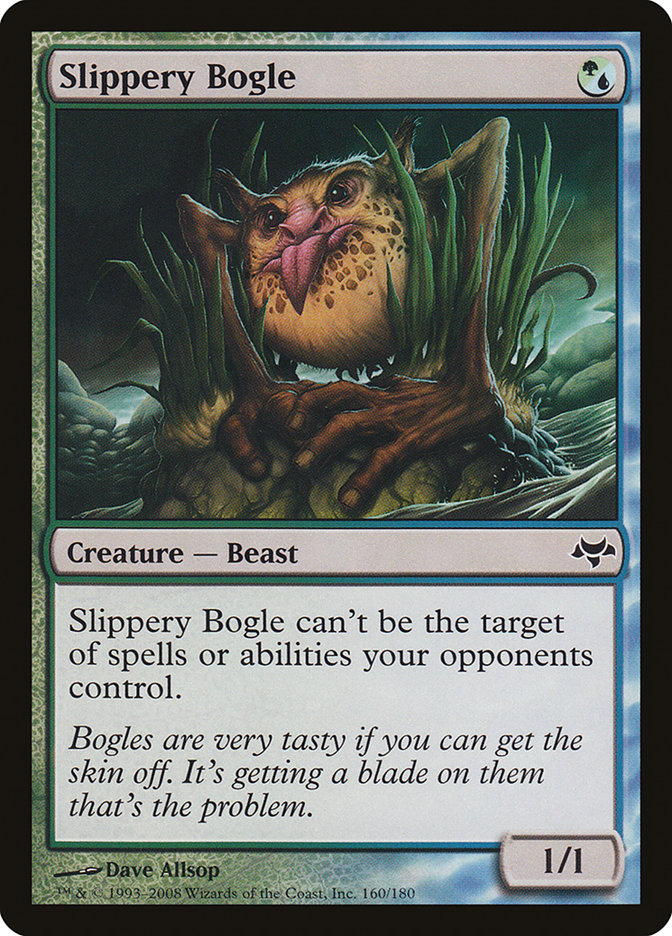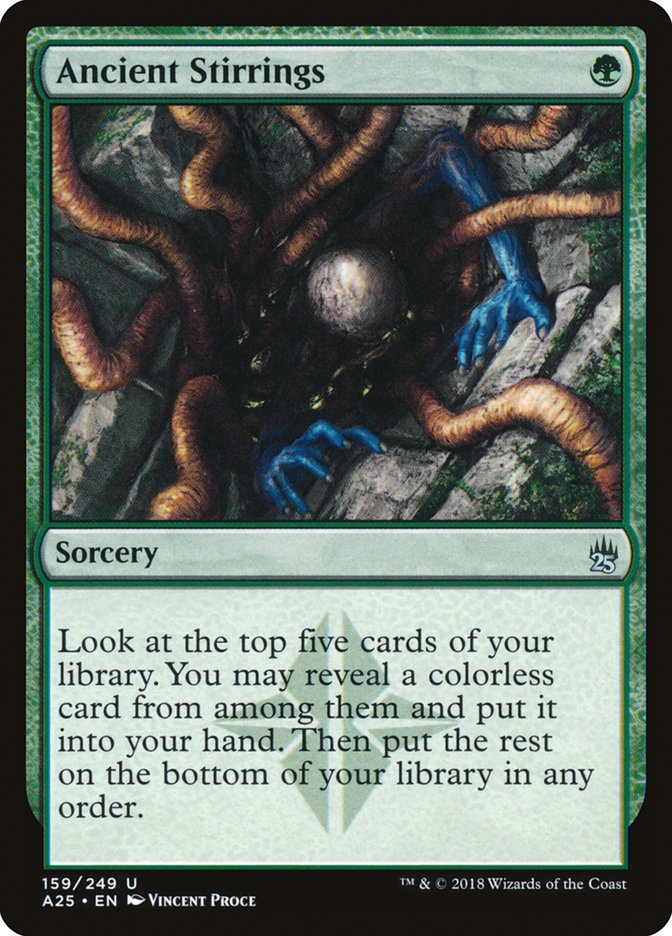Once Jeskai Control arose in Modern as the premier foil to Humans, I expected the next step in the evolution of the Modern metagame to be a rise in big mana strategies to combat Jeskai, most notably Tron. That expectation was one of the reasons I kept playing Blue Moon in the latter stages of Season One of the SCG Tour, since the maindeck Blood Moons turn around the big mana matchup for a deck that would otherwise be at a severe disadvantage due to the dead removal spells and lack of a fast clock.
But despite a stretch of tournaments with control near or at the top in terms of both popularity and performance, Tron failed to pick up steam, leaving the metagame in a somewhat awkward stasis as Humans pilots learned how to play and sideboard for the Jeskai matchup well enough to stay competitive.
Each week I expected things to change, and each week they stayed the same, leading to an articlefromyourstruly that explored several possibilities why such an obvious metagame shift wasn’t happening.
That article focused on ways the big mana decks could be tuned a little more towards the aggressive matchups, since I surmised that those decks were likely to be suppressing any move toward big mana to an extent. However, that shift finally occurred at Grand Prix Las Vegas earlier this month, where two Tron decks made the Top 8 and four more were in the Top 16. And out of those six lists, all of them were the now stock Mono-Green variety. No additional splashes for creature removal, just good mana and the typical slate of velocity and big threats.
Then last weekend at the SCG Tour stop in Atlanta, two more Mono-Green Tron decks made the Top 8 of the Open, with three Tron decks in the Top 8 of the Modern Classic, though those lists were a bit more diverse.
So, if we take these tournaments as evidence that Tron has been well-positioned in the Humans-Jeskai metagame, or at least confirmation of my previous suspicions that it was, why didn’t we see it emerge earlier? Today I’m going to explore some reasons why, and in the process reveal some key insights about why metagaming is such a difficult task.
Are Grand Prix Players Better Than SCG Tour Players?
Is it possible that players on the SCG Tour were stubborn in picking up Tron and needed the results from Las Vegas to push them toward playing a deck they should’ve been for the last month?
As the WotC circuit of tournaments focuses more on Standard and Limited, the SCG Tour is heavily focused on Modern, which has led to a larger divide between the two than we’ve seen in the past. Still, I think this explanation is faulty in its premise that “Grand Prix Players” and “SCG Tour Players” are significantly different groups.
Yes, geographically the SCG Tour is based in the eastern half of the United States while the WotC circuit stretches worldwide, but with the way information is shared so quickly and freely, that geographic divide is almost meaningless unless you make the ridiculous claim that the eastern half of the United States has few good players.
For the most part, these tournaments are drawing from the same base of players: the casual and casual-competitive crowds that mostly play at their local stores and travel to tournaments in their area when they can. When you move into the dedicated competitive crowd that is driving and/or flying on most weekends to play tournaments, you become part of a small minority of players, and thus a small minority of the tournament field. Grand Prix events are a bigger affair than SCG Tour stops, but that mostly comes from attracting a larger portion of the local casual-competitive players.
Where there’s a difference is in the upper crust. Since Grand Prix events offer Pro Points, they often draw some of the top players in the world, players who are simply a cut above the top grinders on the SCG Tour. But since those players are a small minority of the overall field, they aren’t enough to skew the field to the point of suppressing an entire archetype.
It’s also important to note that the top players on the SCG Tour aren’t chopped liver. Two of the more accomplished names in the Top 8 of Grand Prix Las Vegas, Ben Friedman and Eli Kassis, are SCG Tour regulars.
I don’t want to dive further into the GP / SCG comparisons here, since it’s not relevant to my aim or particularly useful in general. Just suffice it to say that whatever differences there are aren’t large enough to explain why Tron was slow to emerge in a favorable metagame.
So what would cause this strange phenomenon? The answer lies in a central error to how we generally approach metagaming. The idea behind predicting what other players will do requires us to ascribe a certain rationality to their approach. Sometimes we make a fallacious assumption, like thinking one deck beats another very badly so lots of people will pick it up, but we’re always assuming that the other players in the tournament are trying to win.
On a certain level we know that’s not entirely accurate. There are players who simply come to have fun, since Magic is their hobby, but those players typically don’t last long, so their effect on the metagame is small. There are also players who care about winning but want to win their way, either with a brew of their own creation or their favorite archetype. The latter of these is particularly relevant in Modern, where investing into a deck is difficult and expensive, but once you do so, it stays usable forever unless something drastic happens like a ban.
Still, I would submit that this group of players doesn’t have much of an effect on the metagame, since they always exist and the metagame still changes significantly over time. There’s clearly a portion of the field that’s large enough to make these shifts and willing to frequently switch decks in order to gain an edge on the rest of the tournament.
These are the players that are most important to consider when metagaming, and that’s convenient since they should be the players who are acting most rationally, acting dispassionately with the singular goal of maximizing their performance of the tournament.
And that’s our flaw. The reality is that these people are not perfectly rational actors. No one is, myself included. We all have a set of personal biases that grow from our own experiences. In Magic, that may be a bias against a certain deck that you’ve done poorly with in the past or towards a certain strategy that you like.
To some degree these biases can be justified. You may tell yourself that a certain deck choice is right for you because you’re more familiar with it than another option that is objectively better positioned, but few if any players actually go through dedicated time to eliminate those holes in their game so that they don’t have to consider the limitations of their own skill when selecting a deck, and can instead choose the best option each time, so in reality those justifications are rationalizations of a choice we wanted to make in the first place.
Essentially, if you never play a control deck because you’re “not good at playing control decks” but you never take any time to practice and get better with control decks, then you’re not acting rationally towards maximizing your own chances of winning, you just don’t want to play control decks, and you’re actively hampering your ability to win when control decks are well-positioned.
Among top players, the most common bias I see is one against linear strategies. The rationalization is that linear decks are too straightforward and don’t offer the pilot enough opportunity to outmaneuver their opponents, an aspect of the game that is valuable to top players. If two decks are relatively equal otherwise, then choosing the more decision-intensive one makes sense, but too often I see this line used to justify playing a weaker deck. The player will convince themselves that the two decks are relatively equal when they aren’t so they can play the deck they’d rather play, because demonstrating their play skill is important to them, perhaps as or more important than winning matches of Magic.
Disclaimer 1: These paragraphs are not a secret dagger to any specific player in the Magic community.
Disclaimer 2: Disclaimer 1 is 100% serious.
So why did this phenomenon manifest now?
I’m going to put this as succinctly as I can:
Everyone Hates Tron
It’s easy to think that Tron has always been reviled, and to an extent I think it has been, but as someone who was around when the deck was first developed, the hate it gets now is beyond anything it got years ago.
Maybe it’s because the popularity of Twitter has made expressing shallow disdain for mundane things a lot easier and thus more popular than it used to be, but I’m pretty sure shallow disdain has always been wildly popular, so maybe it’s more of a bandwagon effect. I know I’ve jumped on that bandwagon before when recording videos, but the truth is I rather like Tron.
Sure, some of the games are awful blowouts but that’s true with plenty of linear decks and relative to some others, Tron is rather complex. The deck has a lot of cantrips which can make mulligan decisions more difficult; utilizing Karn Liberated optimally, especially in the face of burn spells, takes some practice; and there are a lot more deckbuilding decisions for Tron decks these days than in the past because of new cards that have been printed.
When I was playing Humans, the Tron matchup was always tense, since it felt like I needed to win the game before any sweeper or big threat came down, but you could reliably do that by sequencing your disruptive creatures well. With Blue Moon, the games are long and interesting because Blood Moon isn’t lights out and tapping out for it often gives the opponent a window to land Oblivion Stone, at which point they get to control the pace of the game, since you can’t establish a clock without sacrificing more value to the sweeper.
But mostly I like that Tron is a different kind of ramp deck. Rather than quantity, it looks for quality. Just the three right lands will do, and that kind of novel change in a traditional strategy is something I always find endearing, because it showcases just how variable Magic is.
But regardless of my personal feelings on the deck, the Magic community at large loathes Tron in all its forms, and that has a tangible impact on the Modern metagame. Players who would play Tron are incentivized to rationalize a different option lest they become a filthy Tron pilot, unworthy of match points and love. And certainly some top players will look toward a more “skill-intensive” deck.
Tron is truly the Nickelback of Magic decks. Tron players, like fans of the band, have embraced the hatred, feeding off the irrational anger that their simple preferences engender in others. But as I’m sure that widespread hatred of Nickelback has led to casual fans renouncing them, so has the widespread hatred of Tron suppressed players from picking up the deck when it’s well-positioned.
This leaves two questions. First, why hasn’t this happened before; and second, will it continue?
First, I don’t think we’ve seen this happen with Tron before because the level of hatred hasn’t been high enough. Tron is a very good deck, one of the perennial contenders in Modern that can perform well even in a hateful metagame, so it takes a lot for players to rationalize not playing it. That high bar has finally been cleared.
As for the same phenomenon happening with other decks, I think we’ve seen it many times. Amulet Bloom was broken but never a huge portion of the metagame, because it was both non-interactive and tactically difficult to play. Most players who accepted its power came to rationalize that it would be banned before they could become proficient enough with it to justify sacrificing immediate equity by playing it at a subpar level at first.
In current Modern, I’d say G/W Hexproof engenders similar hatred and is thus less represented than it should be in most cases, but it’s not as good of a deck as Tron so the effect on the rest of the metagame is smaller. Though we saw a slight increase in G/W Hexproof recently, following Dan Ward’s win with the deck at Grand Prix Toronto, which leads nicely into the answer for the second question of whether or not Tron will continue to be underrepresented moving forward.
Despite the vitriol, I expect Tron to continue to be a top deck moving forward, because once a hated deck does well, the illusory rationalizations we use to not play it fall apart. It’s a lot easier to justify not playing a deck that doesn’t have recent results than one that does. The false justifications we use are a glass house that shatters upon a barrage of cold, hard reality. So just as G/W Hexproof picked up after Dan Ward’s win, players can now use its results in Las Vegas and Atlanta to overcome their biases against Tron.
That said, a bad weekend or two will easily send those players back into their glass cocoons, so the Tron question in Modern will be a fickle one from now on. There’s going to be more lag between it becoming well-positioned and more popular and less lag in reverse, but exactly how much will be nearly impossible to discern.
Metagaming is about predicting human behavior, and humans do weird stuff sometimes. They aren’t all motivated by the same things, nor do they have the same experiences, so it’s difficult to group them into categories. Of course, not doing so makes the task of metagaming a 500-plus-person tournament impossible, so we’re forced to make educated guesses and refine our process over time. Moving forward, Tron’s infamy is going to be a real factor in how I prepare for Modern tournaments.
That is, until they ban Ancient Stirrings so everyone can be happy for the week and a half before Twitter directs its unrelenting anger elsewhere. Those ten days will be great.


